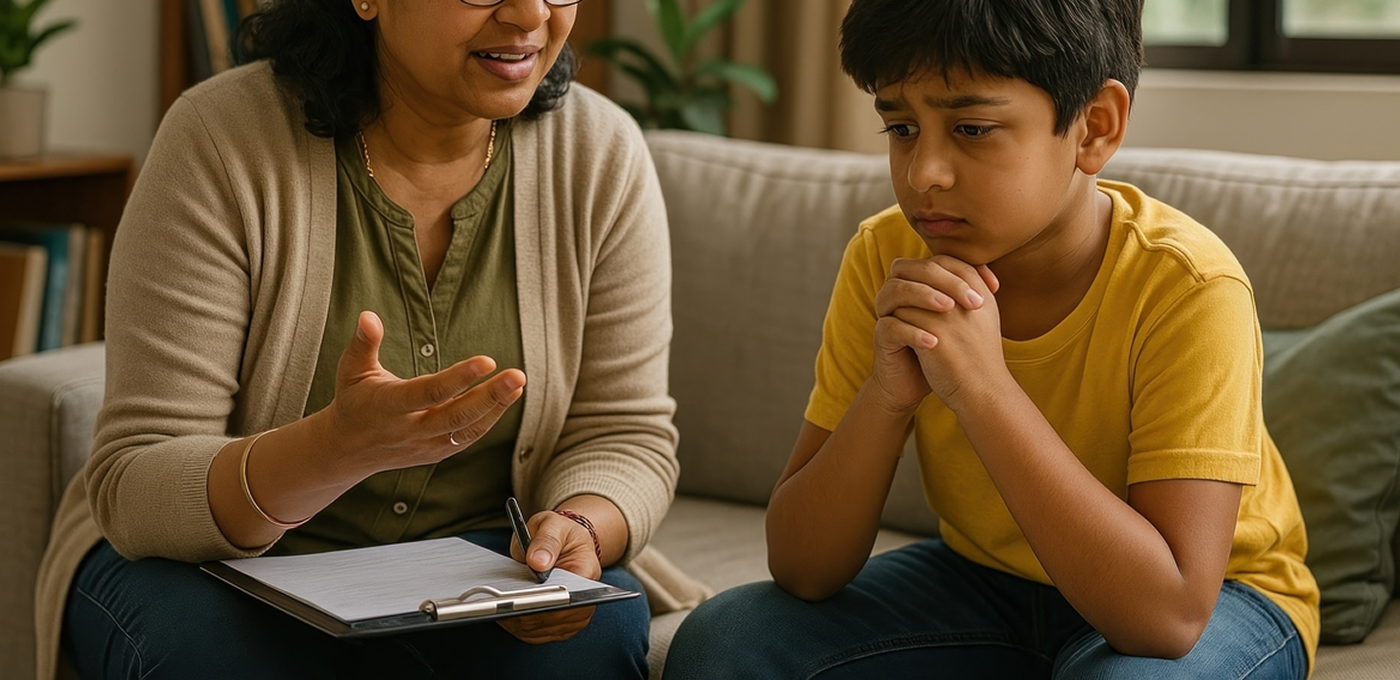
Counselling for Children
Children often express distress through behavior, mood changes, or struggles at school. Child counselling creates a safe, age-appropriate space where they can share feelings—through play, art, storytelling, or words.
In this supportive environment, children learn to understand their emotions, build coping skills, and feel more secure and confident.
Common concerns include anxiety, irritability, attention difficulties, school refusal, or challenges with friendships and self-esteem. Sessions are always tailored to the child’s developmental stage and personality.
Parents play an active role too—through guidance sessions that help support progress at home and school. Counselling is not about “fixing” a child; it is about giving them tools to thrive emotionally, socially, and academically.
By strengthening both the child and the family system, therapy helps create a foundation of resilience, trust, and connection that can support healthy growth.

Age-appropriate space to express emotions through play, art, or words

Builds coping skills, confidence, and emotional security

Supports concerns such as - anxiety, irritability, school refusal, self-esteem

Involves parents with guidance for home and school support
Personalized psychotherapy sessions conducted for over
clients

Helping children, adolescents, couples and families since
years
My Approach
01Evidence-based Modalities
My approaches are supported by research and proven effective across a range of emotional and psychological difficulties.

02Collaborative Process
My treatment process is collaborative, evolving over time to reflect what feels most useful and meaningful for you.

Frequently Asked Questions
Have a specific concern?
01 What happens during the first session?
The first session is primarily focused on understanding your concerns and reasons for seeking therapy. I will ask questions about your current experiences, emotional well-being, personal history, and goals for therapy. It’s also a space for you to ask any questions you may have about the process. The aim is to build a shared understanding and establish a foundation for our work.
02Do I need to have a diagnosis to begin therapy?
No. You do not need a formal diagnosis to start therapy. Many clients seek therapy simply to better understand themselves, manage stress, or navigate life changes. Whether you're dealing with specific difficulties or exploring personal growth, therapy can provide a meaningful space for support and reflection.
03What does a typical therapy session look like?
We offer a variety of therapeutic approaches, including Cognitive Behavioral Therapy (CBT), Psychodynamic Therapy, Mindfulness-Based Therapy, Family and Couples Therapy, and more. Our therapists work with you to determine the best approach based on your individual needs.
04 How often do sessions take place?
We offer a variety of therapeutic approaches, including Cognitive Behavioral Therapy (CBT), Psychodynamic Therapy, Mindfulness-Based Therapy, Family and Couples Therapy, and more. Our therapists work with you to determine the best approach based on your individual needs.


